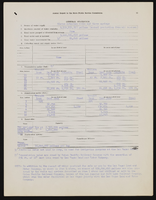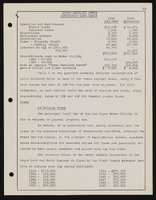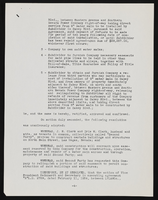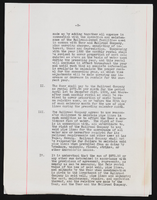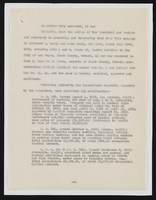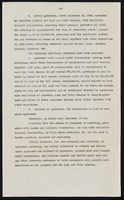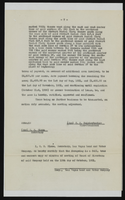Search the Special Collections and Archives Portal
Search Results
Q. B. Bush Papers
Identifier
Abstract
The Q. B. Bush Papers are comprised of Q. B. Bush's personal papers dating from 1957 to 2018 and document Bush's work in Westside Las Vegas, Nevada casinos including the Moulin Rouge, Town Tavern, and the El Morocco. The collection also documents Bush's involvement with the Dealers Security Association and the association's effort to provide better working conditions for African American casino employees. Included are both original photographs and copies of photographs that document the African American casinos where Bush worked, as well as the Bush family at various events.
Archival Collection
Richard D. Chase oral history interview
Identifier
Abstract
Oral history interview with Richard D. Chase conducted by Helen Rondthaler on October 17, 1972 for the Ralph Roske Oral History Project on Early Las Vegas. Chase discusses the history of Las Vegas, Nevada from 1945, touching on topics such as the housing shortage during the 1940s, The Red Rooster swingers’ club, Billy Moore, Sam Larson, Ira Goldring, atomic bomb testing, and the Nevada environment. Chase discusses the importance of construction-based labor to the development of Southern Nevada. Chase also explains at length the impact of the Nevada Test Site on his construction company.
Archival Collection
John West oral history interview
Identifier
Abstract
Oral history interview with John West conducted by Claytee D. White on August 10, 2000 for the Boyer Early Las Vegas Oral History Project. In this interview, West discusses his family background and arriving to Las Vegas, Nevada in 1954. West describes his educational experiences in Las Vegas and his career as a clinical psychologist. He recalls his father’s career in medicine and becoming the first African American licensed medical doctor in Las Vegas. West then talks about attending entertainment events before race integration was introduced, and the voting patterns in West Las Vegas. Lastly, West discusses his father’s decision to remain living in West Las Vegas and operating his medical office there after integration.
Archival Collection

